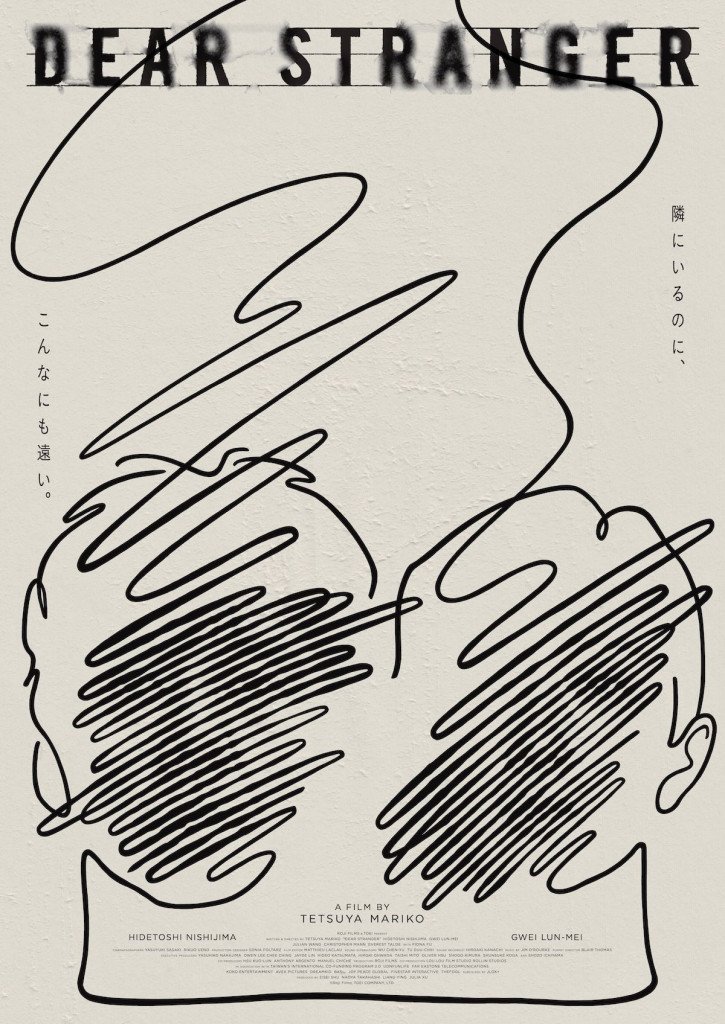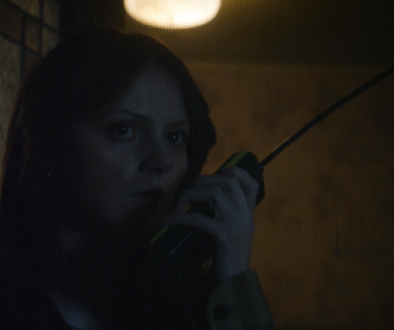Busan 2025 Review: In DEAR STRANGER, A Tale Of Ruinous Redemption
Dear Stranger enjoyed its International Premiere at the 30th edition of Busan International Film Festival.
I’ve had director Tetsuya Mariko on my radar ever since the campaign for his award-winning fourth feature, Destruction Babies. That film I’ve yet to see as well as the rest of his filmography, which makes getting to take a look at his latest drama, Dear Stranger, all the more enticing.
Filmed entirely in New York City, Dear Stranger is a film set against the backdrop of the immigrant experience in the Big Apple, and follows the trials and tribulations of Kenji (Hidetoshi Nishijima) and Jane (Gwen Lun-Mei), a couple on the brink amid crises and looming secrets that threaten their marriage.
Mariko’s applications of language is central to the film’s narrative themes on how langauge plays a role in our connectivity with one another. In this instance, that dichotomy is magnified between Kenji, a Japanese man, and Jane, a Taiwanese American, who both speak English, and in the course of Mariko’s story, are nevertheless stagnant in communicating with one another on matters of core importance.
This level of impasse is further explored in their respective occupations and how their marriage is affected as a result. Kenji is an architectural professor vying for tenure with an expertise on ruins, whereas Jane has been watching over her parents’ store with their young son, Kai, in her care, whereas she would otherwise be focusing on her career as a theatrical puppeteer and stage director.
Violence also runs visibly in the atmosphere of the film almost immediately from the start when Jane’s store is raided by a gang of thugs, and Jane loans a black market pistol from her mother for protection going forward. Moments later while at the supermarket, Jane’s car is mysteriously vandalized by someone spying on her and Kai from just outside.
To add, both Jane and Kenji are so bogged down by their individual woes that Kai’s tendency to wander off further percolates into entropy when, under Kenji’s watch, Kai mysteriously disappears. As their search for Kai begins with the involvement of lead detective Bixby (Christopher Mann), Jane and Kenji are forced to begin the long and painful process of coming to terms with their marriage and where they truly stand with one another.
Dear Stranger is as compelling in its unfolding as it is bewildering well into the final moments. Mariko’s script keenly uses natural disasters and internal psychosis to highlight the generational impact of unhealed trauma, combined with issues of identity on matters of language, romance and purpose. There’s an intrinsic, psychological element as well that Mariko explores in our characters, most prominently surronding Kenji who sometimes escapes to the long-shuttered theater where he met Jane years earlier.
The film even segues briefly into crime procedural territory while following Kenji’s synonymous dissent into madness, as he investigating Kai’s disappearance on his own terms. A revelation gives way to a chase followed by a life-or-death scuffle with Kai’s alleged kidnapper, resulting in another violent death that adds further to the mystery and intrigue.

What unfolds in Dear Stranger between Kenji and Jane isn’t necessarily a tale of a loveless marriage. There’s love there, for sure, although by the end, the love has become arguably hindered by factors both within and outside the boundaries of their control, resulting in a bittersweet recapitulation akin to an enduring, troubled aftermath.
The cast also enlists Julian Wang who plays irksome and wayward garage dweller Donny, who works for Kenji’s friend, Miguel, played by Aitor Martin, and Mia Reece who plays Donny’s girlfriend, Monica. The biggest praise quite possibly goes to the cast’s youngest member, Everest Talde, whose portrayal of Kai caught in the film’s whirlwind of drama keeps you ever on the edge of your seat.
Dear Stranger poses a piquant, cross-cultural examination of love, marriage, and disquiet, punctuated with a multi-lingual approach to the script. Nishijima and Gwen are a terrific pair to observe in the way they carry each other amid the fluctuating drama which, at one point early on sees them diverging from English and into their respective languages during an argument.
Enhancing Mariko’s vision is a jazzy score by Jim O’Rourke that contributes immensely to the film’s acute undertones, and frequent noir visage in Yasuyuki Sasaki cinematography all laying clear the film’s kinetic landscape from the city’s bustling streets to its murky, dark corners.
I’m a native, so I’m pretty biased in Mariko’s choice of location for a film like Dear Stranger. Aside from this, Mariko’s film serves as a gripping and lurid tale of survival and sacrifice, and redemption at grave costs.




